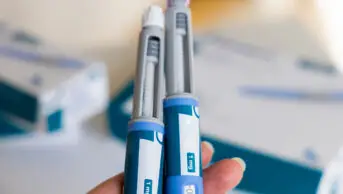
Shutterstock.com
Draft guidance published by the National Institute for Health and Care Excellence (NICE) on medicines associated with dependence or withdrawal symptoms needs more detailed guidance on safe tapering, the Royal Pharmaceutical Society (RPS) has warned.
The guideline — NICE’s first guidance specifically focusing on medicines that can cause dependence or withdrawal symptoms — was published on 22 October 2021, with a consultation that closed on 5 December 2021.
It includes draft guidance on prescribing and managing withdrawal from opioids, benzodiazepines, gabapentinoids, Z-drugs and antidepressants — but excludes opioids prescribed for acute pain, cancer pain or at the end of life.
In its response to the consultation, published in December 2021, the RPS said that the draft guidelines on “slow tapering” were “open to too much interpretation and could be harmful”.
The guidance says: “[For] opioids, benzodiazepines, Z-drugs and antidepressants, [clinicians should] suggest a slow, stepwise rate of reduction proportionate to the existing dose, so that decrements become smaller as the dose is lowered, unless rapid withdrawal is needed.”
However, the RPS said that the guidance should include practical information on “tapering rates, the interval between dose reductions, how to reduce doses and the overall duration of taper”, adding that the guidelines “appear to focus on quick withdrawal based on other incentivising factors … and this is not appropriate for this category of medicines”.
“We believe that the patient should be empowered to be in control of the speed of tapering,” the response said.
In its draft document, NICE noted that there was currently a dearth of guidelines on avoiding dependence and managing withdrawal from prescribed medicines, and that the guideline “aims to meet the need for evidence-based advice in these areas”.
The RPS added that it would be good to see more emphasis on the importance of communication within the draft guidance, in terms of patient consent, between all members of the patients’ healthcare team.
“There is no real mention throughout about the importance of communication with all those involved in the patients care,” the response said.
“Community pharmacists are important particularly where abuse is a factor, leading to for example over-ordering which sometimes gets missed by prescribers.”
The final guidance is expected to be published on 20 April 2022.
Read more: Cochrane review finds ‘urgent shortage’ of evidence around safe withdrawal from antidepressants


